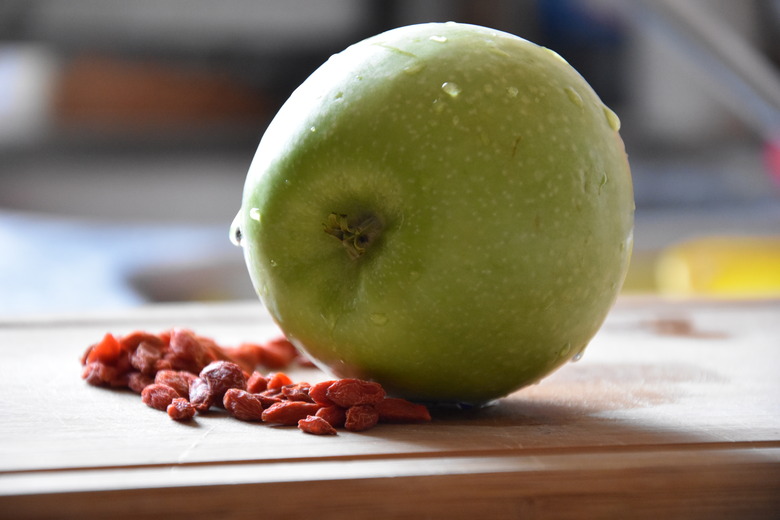What Is Malic Acid?
How acidic is your body? The human body produces malic acid when you eat carbohydrates, and they convert into energy. Some fruits and vegetables contain malic acid. Malic acid is useful in alleviating some medical conditions, is a dietary supplement and is often found in skin care products. This chemical is also useful in the food industry.
What Is Malic Acid Found In?
What Is Malic Acid Found In?
You are most likely consuming natural malic acid in the everyday foods that you eat. It is readily available in many fruits such as:
- apples
- blackberries
- bananas
- cherries
- pears
- grapes
- watermelon
Malic acid is also in several vegetables, such as
- broccoli
- carrots
- peas
- potatoes
- tomatoes
- rhubarb
What Is Malic Acid Made From?
What Is Malic Acid Made From?
When malic acid is made in a supplement form, it is derived from apples, as they have the largest natural source in them. The amount of malic acid in an apple comprises an amazing 94 to 98 percent of the total acids in the fruit.
What Is Malic Acid Used for in Foods?
What Is Malic Acid Used for in Foods?
Malic acid is the tartness that is added to extremely sour candies and may be used in combination with citric acid in sour sweets as well. In carbonated drinks that are artificially sweetened, the addition of malic acid allows less use of the flavor additives. It is also used widely in non-carbonated beverages of all types, ciders and wines, acidified dairy products such as fruit flavored milk drinks, whey based protein drinks and soy milk.
If you consume confectioneries, hard or soft candy, chewing gum, fruit preserves and bakery products, you are most likely eating malic acid in the process.
What Are Malic Acid Side Effects?
What Are Malic Acid Side Effects?
This chemical may help when taken as a supplement for tiredness and fibromyalgia, although not enough evidence is available. It may also increase energy levels and the amount of time you spend in the gym while aiding in a faster muscle recovery time. In cosmetic products, malic acid is used to adjust the acidity.
Malic acid is likely safe when taken by mouth in your foods. However, there isn't solid medical evidence to say it is indeed safe as a supplement.
Is Malic Acid Bad for You?
Is Malic Acid Bad for You?
Very few studies have been done on supplemental malic acid, but there is some evidence that points to it being beneficial. One study found that it may deter kidney stones from developing and that athletes saw a significant increase in their physical performances. It has been used in a spray for dry mouth and when taken with magnesium it helps alleviate pain and tender areas in patients with fibromyalgia.
The best idea is to always consult your physician before using any nutritional supplements, as the professionals have the most information on these items.
Cite This Article
MLA
Lougee, Mary. "What Is Malic Acid?" sciencing.com, https://www.sciencing.com/what-is-malic-acid-13712157/. 27 April 2018.
APA
Lougee, Mary. (2018, April 27). What Is Malic Acid?. sciencing.com. Retrieved from https://www.sciencing.com/what-is-malic-acid-13712157/
Chicago
Lougee, Mary. What Is Malic Acid? last modified March 24, 2022. https://www.sciencing.com/what-is-malic-acid-13712157/
